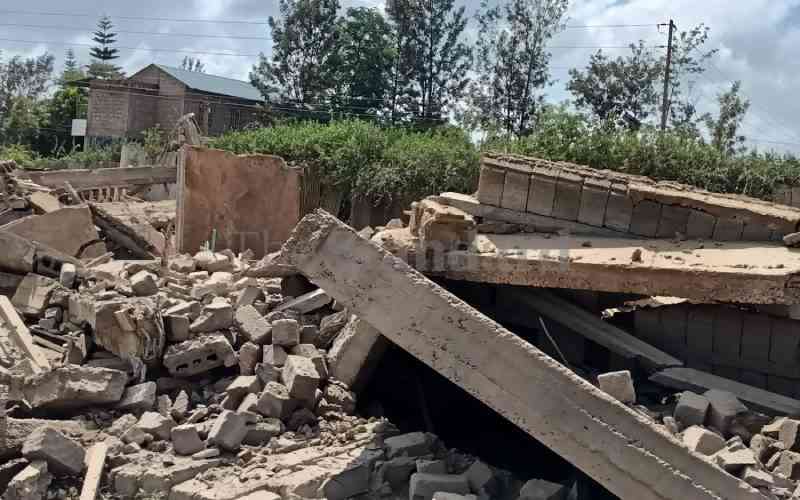NAIROBI: Kenya’s economy is currently growing at more than five per cent annually, with experts predicting this could increase to 10 per cent in the next few years.
This means more Kenyans will be able to buy their own homes, thus creating demand for housing and business opportunities for developers. The real estate business in Kenya is still immature. Unlike the tea, tourism or horticulture industries, where decades of experience have led to efficient work practices due to high levels of expertise and strong management, the real estate business is still finding its feet.
While there are opportunities to make big profits, the risk of making huge losses is also real. The potential for high profits attracts investors who may know little about the business. They care more about making quick returns than the quality of the product or the long-term viability of their business. With very little activity in public housing sector, private developers provide the vast majority of new homes. Kenya is among countries with a number of serious players.
A key advantage of buying your home from an established developer is that you are more likely to get a well-designed and properly constructed house. A seasoned developer will stand by the product rather than risk his good reputation by ignoring reasonable warranty claims. On the other hand, one-off developers hardly look beyond a short-term profit and it may be difficult to deal with him if warranty claims are submitted.
Most developers will sell houses at the highest price the market can pay. If supply is higher than demand, buyers can drive a hard bargain and effectively reduce prices across the sector.
However, selling prices can only be driven down to a certain point before losses are made and the business becomes unsustainable. At this point, rather than sell, the developer may rent out completed units to generate some cash flow and wait for the market to recover.
The talk in Kenya has been to deliver low-cost houses selling below Sh1.5 million. On paper, this is quite possible but difficult to achieve in practice. A successful real estate project requires a good location, suitable and affordable land, a clean title, good planning, an environmental impact assessment report, National Environment Management Authority licence, planning permit, National Construction Authority permit, reliable power and water supply, sewerage connection, road access, adequate drainage, good security, reasonable legal fees, land office registration and estates management.
Simply put, there is no incentive for a developer to jump through all the above hoops in order to build low-cost housing because these are the same hurdles for middle and high-cost houses that are more profitable.
Low-cost housing is possible only if all the key elements are delivered seamlessly and at cost ratios that are in line with the selling prices.
 The Standard Group Plc is a
multi-media organization with investments in media platforms spanning newspaper
print operations, television, radio broadcasting, digital and online services. The
Standard Group is recognized as a leading multi-media house in Kenya with a key
influence in matters of national and international interest.
The Standard Group Plc is a
multi-media organization with investments in media platforms spanning newspaper
print operations, television, radio broadcasting, digital and online services. The
Standard Group is recognized as a leading multi-media house in Kenya with a key
influence in matters of national and international interest.
 The Standard Group Plc is a
multi-media organization with investments in media platforms spanning newspaper
print operations, television, radio broadcasting, digital and online services. The
Standard Group is recognized as a leading multi-media house in Kenya with a key
influence in matters of national and international interest.
The Standard Group Plc is a
multi-media organization with investments in media platforms spanning newspaper
print operations, television, radio broadcasting, digital and online services. The
Standard Group is recognized as a leading multi-media house in Kenya with a key
influence in matters of national and international interest.







